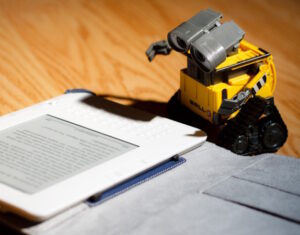
Michael Brian Schiffer is perhaps best-known (amongst archaeologists of a certain age in the UK at least), for his development of behavioural archaeology, which looked at the changing relationships between people and things as a response to the processual archaeology of Binford et al. (Schiffer 1976; 2010), and for his work on the formation processes of the archaeological record (Schiffer 1987). But Schiffer also has an extensive track record of work on archaeological (and behavioural) approaches to modern technologies and technological change (e.g., Schiffer 1992; 2011) which receives little attention in the digital archaeology arena, in part because despite his interest in a host of other electrical devices involved in knowledge creation (e.g., Schiffer 2013, 81ff) he has little to say about computers beyond observing their use in modelling and simulation or as an example of an aggregate technology constructed from multiple technologies and having a generalised functionality (Schiffer 2011, 167-171).
In his book The Archaeology of Science, Schiffer introduces the idea of the ‘discovery machine’. In applying such an apparatus,


